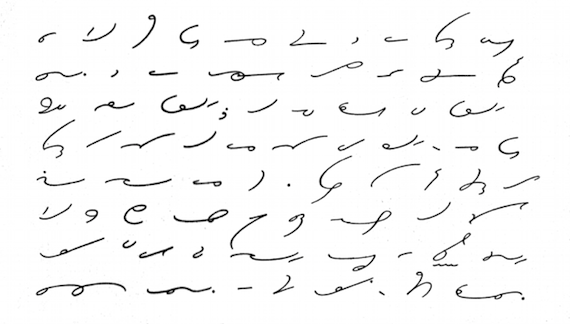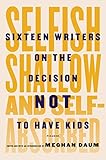
In high school, my friends dared me to guzzle a cup of tequila, straight. I did, and promptly threw up in the sink nearby. As I stood, trembling and disgusted, someone asked, “Did you just say Europe?” I guess the sound of my retching resembled that word. Eur-ope! From then on, no one in our group vomited. We europed.
I love and despise the shorthand and passwords of any enclosed community, how they draw their members closer, how they exclude interlopers. A couple of months ago, another mother asked me, “How old is your little?” and I had no idea she was referring to my child. (When I finally caught on, I may have europed in my mouth. My little? Seriously, person, go scrapbook and leave me alone.)
My husband can’t help but use acronyms when he’s talking about work; this shorthand is annoying and meaningless to me, but for him it communicates whole spreadsheets and projects in just a few letters, and, more importantly, it proves he belongs in that world. To my ongoing confusion, acronyms are also central to the Internet. Women on various pregnancy and parenting message boards use “DH,” which stands for “dear husband,” but which always makes me think of baseball. Recently, I came upon the acronym “tfw” on Twitter. If you don’t know (because you’re old like me), it stands for, “that feel when.” This particular acronym requires further understanding of Internet syntactical shorthand, i.e, “all the feels.” My delight and rage at this particular Internet-ism is complex: How could such awkwardness have caught on? Everyone who uses this must be putting on airs! And, wow, how nimble and efficient language is, and how fast we (um, they) have written a tribal code!
 All this has gotten me thinking about the language of writers and readers. My tribe! Of course there’s the craft language, like dramatize and close third, and there’s the business language, like galley and blurb. But there are a host of other moments in the life of a writer/reader that require their own special words. I’d settle for acronyms. We can do this, people! (Or maybe Lizzie Skurnick can?) Our tribe came up with Franzenfreude, after all.
All this has gotten me thinking about the language of writers and readers. My tribe! Of course there’s the craft language, like dramatize and close third, and there’s the business language, like galley and blurb. But there are a host of other moments in the life of a writer/reader that require their own special words. I’d settle for acronyms. We can do this, people! (Or maybe Lizzie Skurnick can?) Our tribe came up with Franzenfreude, after all.
Here are 11 feelings/experiences, now get me their names:
1.The moment you finally give up on your dream of reading all your back issues of The New Yorker and throw the whole pile of magazines into the recycling bin. It’s a mixture of joy and relief, guilt and shame.
2. That moment right before you type a new sentence when you know — you just know! — that Microsoft Word is going to indent every line of the paragraph. For no reason. Just to mess with you. First you feel dread, followed by frustration, and then, a strange satisfaction that all your fears were warranted.
3. The annoyance, swiftly followed by sadness and pity, that you feel when you receive yet another press release heralding someone’s self-published coloring book about surviving childhood molestation despite a debilitating gluten allergy as well as facial blindness, and can you review it please?
4. The freedom and weightlessness that follows a successful writing session. Its antonym would refer to the despair and hopelessness that descends upon you when you don’t write…despite having all the time in the goddamned world.
5. The pure rage you feel upon adding up just how much you spent to attend AWP. It’s like traveling across the country to attend a wedding — where no one actually got married.
6. The gratefulness a writer-parent experiences knowing they have the golden excuse, “I can’t come to your reading, I’ve got my kid!” for at least five years.
7. The panic that writers feel when they’re about to become parents, realizing how little they’ve accomplished, professionally speaking. You know, it’s the feeling that you haven’t published a book/won an award/been on a bestseller list/gotten reviewed by a major paper, and Johnny Jr. is only seven weeks away! Life’s over, guys!
 8. The left-out feeling of every child-free writer not included in Meghan Daum’s much-lauded anthology about writers who don’t have kids. (Related: Every left-out writing feeling ever. Note to Editors: if you’re working on an anthology about freckles, you better call me, or else I’ll cry.)
8. The left-out feeling of every child-free writer not included in Meghan Daum’s much-lauded anthology about writers who don’t have kids. (Related: Every left-out writing feeling ever. Note to Editors: if you’re working on an anthology about freckles, you better call me, or else I’ll cry.)
9. The horror you experience upon realizing the math in your manuscript is all wrong. (“If she was 24 in 1992 then that means in 2015 she’s only…Oh God, no!”)
10. We need words for the exquisite grossness of messy reading. For instance: the food stains in the margins of your books. Or: when your hands and knees get stained from reading in a bath a hardcover without its jacket.
11. The fluttery, lusty buzz you experience buying a book that you cannot wait to read. Similar to the intoxicating, heart-pounding sensation of reading something so good, it’s almost overwhelming. What joy! What a life!
Image Credit: Wikimedia Commons.




